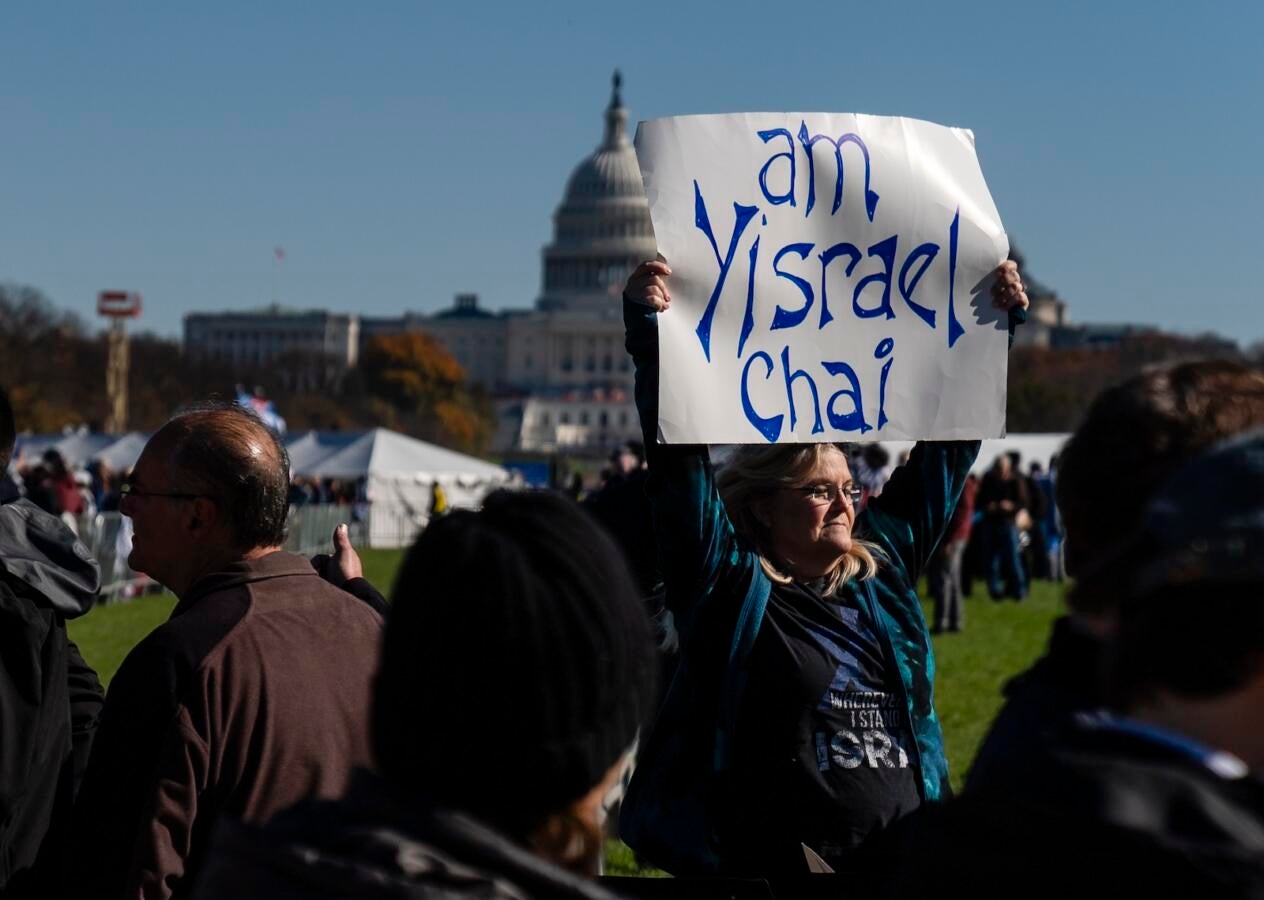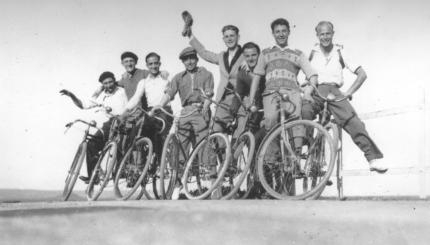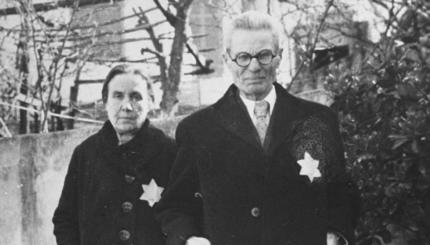Am Yisrael Chai, literally “the people of Israel live,” is a slogan of Jewish continuity and resilience frequently invoked in moments of communal hardship. The phrase is said to have originated with a British Jewish army chaplain who reportedly called it out at the liberation of Bergen-Belsen after World War II. But the phrase is widely known today thanks to a song composed by Shlomo Carlebach with that title, which became an anthem of the fight to liberate Soviet Jewry.
The story of the song’s origin is reportedly found in a 2003 letter from Jacob Birnbaum, who founded the Student Struggle for Soviet Jewry in 1964. Birnbaum was seeking a song to inspire activists at a major rally scheduled for April 1965 opposite the Soviet mission to the United Nations and reached out to Carlebach, who was by then developing an international reputation as a composer and recording artist. Carlebach wound up writing the song and performing it for the first time while on a trip to Prague.
After the New York demonstration, the song became an anthem and the words themselves a rallying cry, chanted at virtually every major Jewish political gathering in the decades that followed. News reports record it being shouted at rallies in 1975 protesting the U.N. vote to equate Zionism with racism and to allow the Palestinian Liberation Organization to participate in a U.N. debate. It was chanted when then Israeli Prime Minister Golda Meir received an honorary degree from Yeshiva University in 1973 and when Israeli and Soviet basketball teams faced off in Moscow in 1989. Israeli Prime Minister Benjamin Netanyahu wrote it in the visitors book during his 2009 visit to the Wannsee Villa in Berlin where the leaders of the Third Reich planned the Holocaust.
The words themselves appear nowhere in Jewish scriptural sources. But the second half of Carlebach’s song, od avinu chai (“our father still lives”), is derived from a story in Genesis in which Joseph, having revealed himself to his brothers, asks if their father is still alive (ha’od avi chai). In Carlebach’s rendering, that question is turned into a statement.

Help us keep Jewish knowledge accessible to millions of people around the world.
Your donation to My Jewish Learning fuels endless journeys of Jewish discovery. With your help, My Jewish Learning can continue to provide nonstop opportunities for learning, connection and growth.
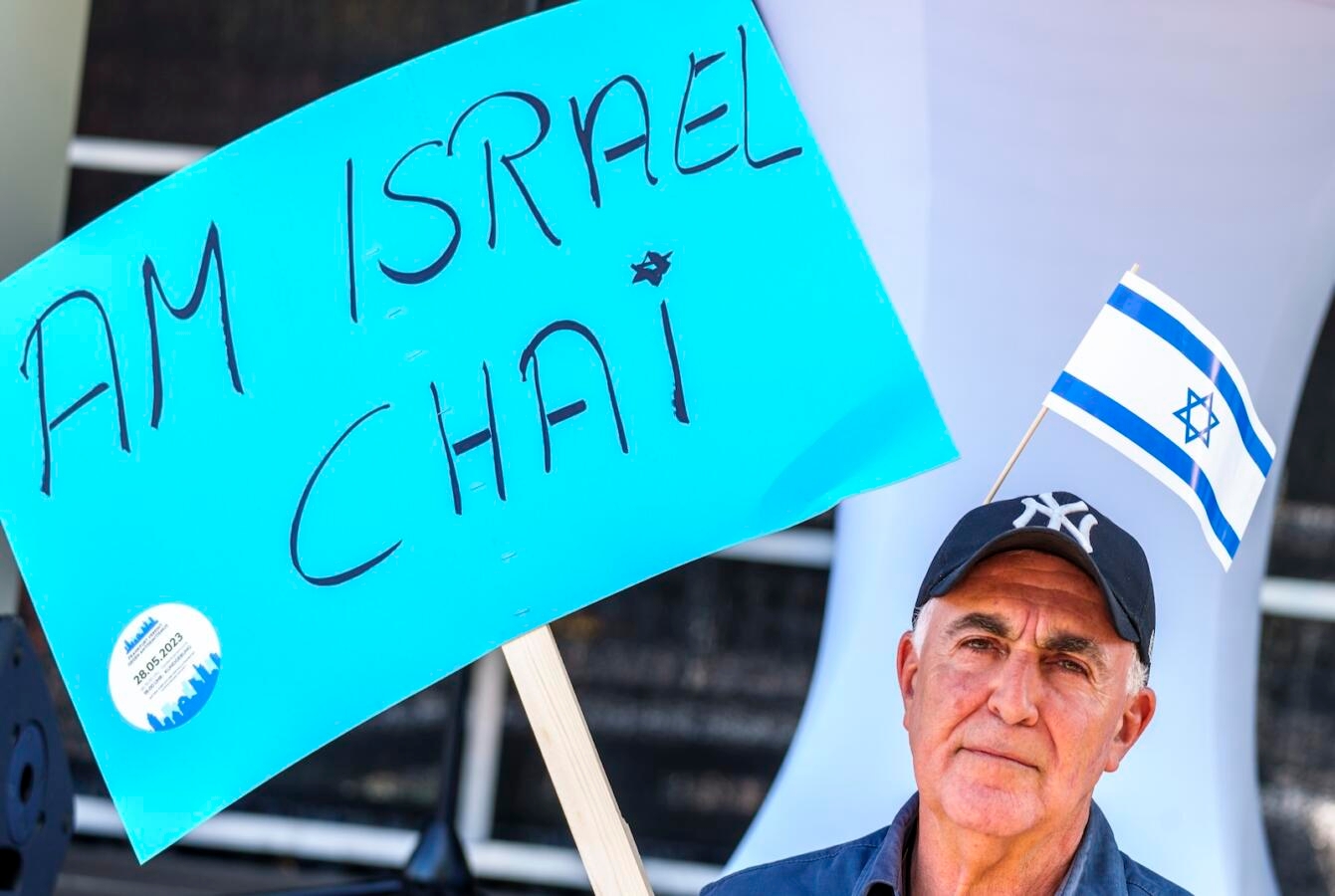
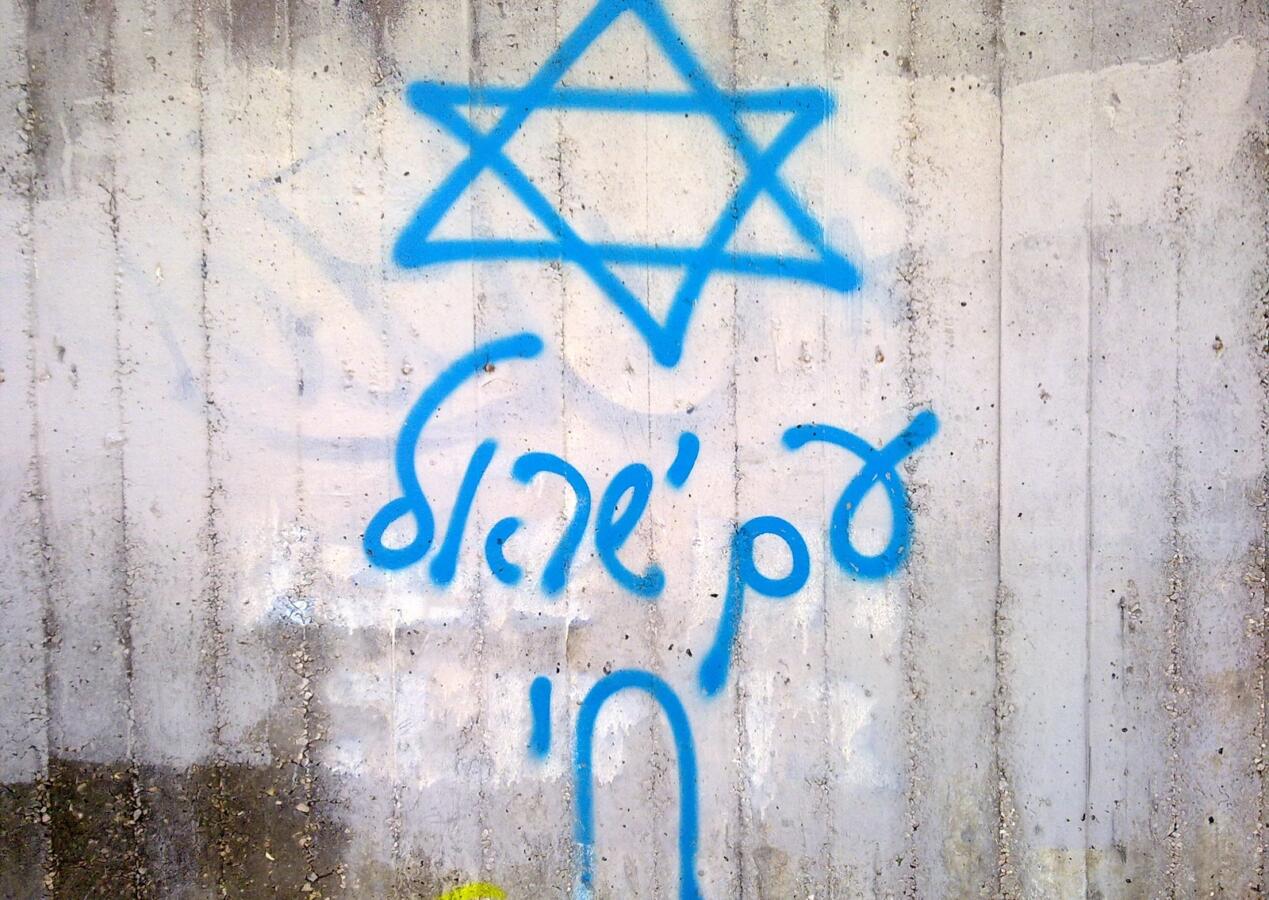
The words have also been associated with the reprisal attacks against Palestinians known as “price tag attacks,” with the phrase scrawled on property and buildings in Palestinian towns in response to attacks on Jews. But for most Jews, the words are an affirmation of Jewish endurance in the face of oppression.
